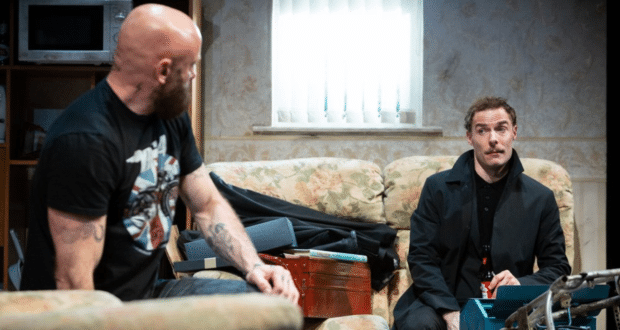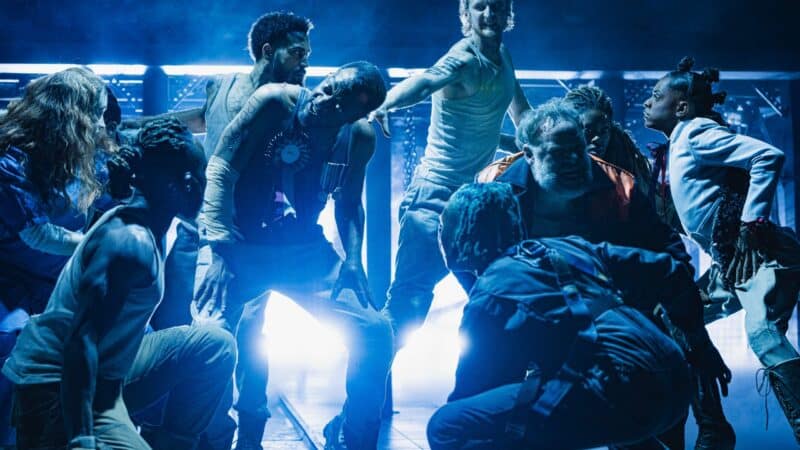Wilton’s Music Hall
The theatrical version of ‘does what it says on the tin’, Anders Lustgarten’s new state of the nation play focuses on the north/south divide and the rise of the alt-right. City vs town, left vs right, community vs self, you get the idea…
Anders Lustgarten exploded onto the scene in 2007 with commissions from the National and Soho Theatres, then The Royal Court followed suit. Now we have the latest London premiere, slap bang in the middle of a nationwide tour. For a play so rooted in the discussion of northern identity and history, it will be interesting to see how Scarborough and Newcastle react to this hardly flattering depiction.
The premise is simple and much repeated. One brother leaves a desolate northern town to travel to the big smoke and succeeds, sacrificing his only brother to provincial languishing, looking after their ailing father. Add in (for flavour) a sprinkle of fascism and there you have it: The City and the Town. As someone who grew up (partly) in the ‘wastes’ of the north, I find Lustgarten’s idea of counties still reeling from the closure of the mines a little outdated; out of step with the bustling metropolises of Manchester or Leeds, or the reinvention of places like Hebden bridge. It isn’t actually as grim up north as the play might make you believe – in fact in some sections it’s really rather nice. I am writing this from London though, so take pinches of salt where required.
A wedge of 21st-century squaller looks like it’s been dropped in the 19th-century faded grandeur of Wilton’s Music Hall: like the living room of an impoverished family fell Wizard of Oz style, thankfully in its decency sparing any innocent witches this time. Hannah Sibai’s comprehensive little living room is the only setting for the bloodbath of political, familial, and emotional warfare that unfolds within.
Despite a tendency to push his themes to the extreme, Lustgarten has a clever eye for political drama, which make sense considering his activism. The discussion of the growth of the far right in disadvantaged communities is insightful, and the complexities of gentrification and the blind spots of the liberal elite are pertinent in this temporary Whitechapel home.
It’s his characterisation that could do with some warmth. We have Ben (Samuel Collings) a cashmere-clad lawyer returning home for the first time in 13 years. Collings does animate the character despite script limitations. Magnus, his tattooed monster of a brother, is played with comedic flare by Gareth Watkins. Although capable with the terse “Ta’s” (thank you in northern) that the imbittered mechanic throws at his brother, he struggles with the faster-paced punchiness of the many arguments. As they box up the life of their departed father, secrets, rivalries and pain are unearthed amidst the wreckage. Lastly, we have Lyndsey (Amelia Donkor) Ben’s old sweetheart, battling with the same small-town struggles as Magnus but with the extra dimension of race thrown into the mix. By far the most layered character, Donkor’s performance is a little overloaded with gesture.
As the three lambast each other’s choice of ideology, profession, location, and basically everything, moments of tenderness do flare and fade. But the repetition of certain lines “you’ve not been here for 13 years” and “what do you think would happen” for example reduce the characters to puppets dramatising a political science seminar. Coupled with Dritëro Kasapi’s direction forcing them to pace the petite space like caged animals the play lacks the needed humanity to fully achieve its ambitious aims. When the final ‘shocking’ crescendo explodes the lacking emotional groundwork turns a tragic moment into a comic one and the stacked potential tumbles like so many cardboard boxes.
Never miss a show, click here!



